See also
- Lost in the Stars (1974 film), a 1974 Kurt Weill-Maxwell Anderson musical adaptation of Alan Paton's novel
Cry, the Beloved Country is a 1948 novel by Alan Paton.
Cry, the Beloved Country may also refer to:
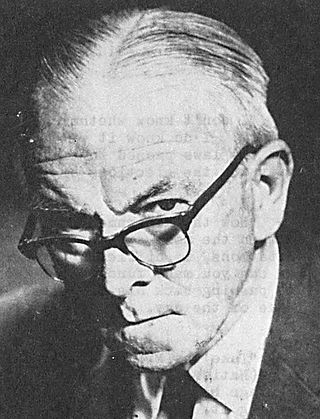
Alan Stewart Paton was a South African writer and anti-apartheid activist. His works include the novels Cry, the Beloved Country, Too Late the Phalarope and the narrative poem The Wasteland.
Lost in the Stars is a musical with book and lyrics by Maxwell Anderson and music by Kurt Weill, based on the novel Cry, the Beloved Country (1948) by Alan Paton. The musical premiered on Broadway in 1949; it was the composer's last work for the stage before he died the following year.
Theophilus is a male given name with a range of alternative spellings. Its origin is the Greek word Θεόφιλος from θεός (God) and φιλία can be translated as "Love of God" or "Friend of God", i.e., it is a theophoric name, synonymous with the name Amadeus which originates from Latin, Gottlieb in German and Bogomil in Slavic. Theophilus may refer to:
Lionel Ngakane was a South African filmmaker and actor, who lived in exile in the United Kingdom from the 1950s until 1994, when he returned to South Africa after the end of apartheid. His 1965 film Jemima and Johnny, inspired by the 1958 "race riots" in Notting Hill, London, won awards at the Venice and Rimini film festivals. In the 1960s, Ngakane was a founding member of the Pan African Federation of Filmmakers (FEPACI) and Fespaco, the Panafrican Film and Television Festival of Ouagadougou (FESPACO).
Absalom (Avshalom) is a son of King David in the Old Testament.

Odendaalsrus is the oldest gold mining town in the Lejweleputswa District Municipality in the goldfields of the Free State province in South Africa.
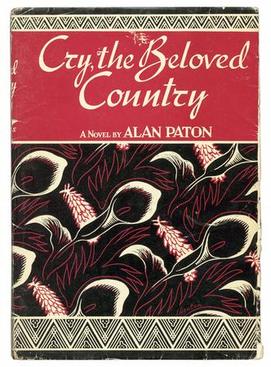
Cry, the Beloved Country is a 1948 novel by South African writer Alan Paton. Set in the prelude to apartheid in South Africa, it follows a black village priest and a white farmer who must deal with news of a murder.
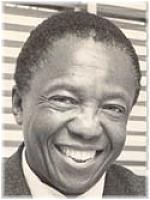
Cyril Lincoln Sibusiso Nyembezi (1919–2000) was a South African writer known as a Zulu novelist, poet, scholar, teacher and editor. Inkinsela yase Mgungundlovu was made into a television series because of the popularity of the novel.

Cry, the Beloved Country is a 1995 South African-American drama film directed by Darrell Roodt, based on the novel Cry, the Beloved Country by Alan Paton. It stars James Earl Jones and Richard Harris.

Cry, the Beloved Country is a 1951 British drama film directed by Zoltán Korda and starring Sidney Poitier, Charles Carson and Canada Lee, in his last film role. The film is based on the novel of the same name written by Alan Paton.
There is a wide range of ways in which people have represented apartheid in popular culture. During (1948–1994) and following the apartheid era in South Africa, apartheid has been referenced in many books, films, and other forms of art and literature.
The Sunday Times CNA Literary Awards are awarded annually to South African writers by the South African weekly newspaper the Sunday Times. They comprise the Sunday Times CNA Literary Award for Non-fiction and the Sunday Times CNA Literary Award for Fiction, and are awarded for full-length non-fiction works and novels, respectively. Both winners receive R100 000. Ivan Vladislavic is the only person to have won both the fiction and the non-fiction award.
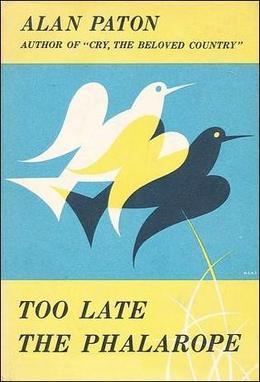
Too Late the Phalarope is the second novel of Alan Paton, the South African author who is best known for writing Cry, the Beloved Country. It was published in 1953, and was the last novel he published before Ah, but Your Land Is Beautiful in 1981.

Lost in the Stars is the 1974 film version of the Kurt Weill-Maxwell Anderson musical adaptation of the Alan Paton novel Cry, the Beloved Country. The film was produced and released as part of the American Film Theatre, which adapted theatrical works for a subscription-driven cinema series.

Ah, But Your Land Is Beautiful is the third novel of Alan Paton, the South African author who is best known for writing Cry, the Beloved Country. Ah, But Your Land is Beautiful is an anti-apartheid novel, in a similar vein to Cry, the Beloved Country. It is a fictional reworking of Paton's own years working as a political activist and of the experience he gained working as the president of the Liberal Party of South Africa.
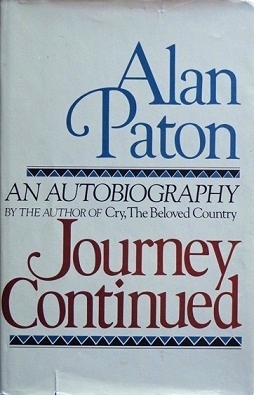
Journey Continued: An Autobiography is the second part of Alan Paton's autobiography, the first being Towards the Mountain. Paton had completed the writing and correction of the volume, but he died before its publication in 1988.

Ubuhlebezwe Local Municipality is an administrative area in the Harry Gwala District of KwaZulu-Natal in South Africa. Ubuhlebezwe is an isiZulu name meaning "The Beauty of the Land". The name is derived from Alan Paton's novel, Cry, The Beloved Country.
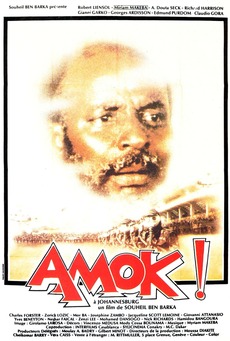
Amok is a 1983 Moroccan drama film directed by Souheil Ben-Barka. It won the Golden Prize at the 13th Moscow International Film Festival. Borrowing heavily of Alan Paton's Cry, the beloved country but putting the action in the context of the Soweto uprising, it tells the initiating journey of an old teacher from a backward Natal village to the conflict-ridden modern Johannesburg.
An intercalary chapter is a chapter in a novel or novella that is relevant to the theme, but does not involve the main characters or further the plot. Intercalary chapters often take the form of vignettes that offer a broader or alternative perspective to the experiences of the main character. They can also be used to provide social and historical background that can't be easily interwoven into the narrative chapters.
Lost in the Stars is a 1949 musical based on the 1948 novel Cry, the Beloved Country.